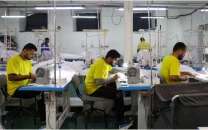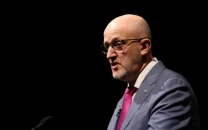The caste factor in Indian elections
Indians will vote for parties that are formed on the basis of linguistic and regional chauvinism and are caste based.

The writer is a columnist. He is also a former editor of the Mumbai-based English newspaper Mid Day and the Gujarati paper Divya Bhaskar
aakar.patel@tribune.com.pk
In both instances, an ambitious man charged with serious corruption wanted to become chief minister. Both Yeddyurappa and Jaganmohan blackmailed their parties and broke them when they stood on principle and refused to give them power. And in both instances, the voter has disagreed with principle. The BJP lost a recent local body election after its vote was split by Yeddyurappa’s party and the Congress, too, lost after its votes were split by Jaganmohan’s party. In both instances, the defeat came after a significant chunk of the caste vote left with the leader.
The Indian voter picks his party confessionally, and will side with his caste. Corruption, governance, anti-incumbency and other such epithets are superficial for the most part and applied on top to justify what is essentially a success of community agglomeration by the party.
The voter doesn’t care about corruption and demonstrably corrupt people can return to power in India. The history of elections in Tamil Nadu, Uttar Pradesh and Bihar shows us this quite clearly and to look for other justifications is to be blind to reality.
The other aspect is to what extent issues matter in an election. We in the media would like to believe that it is policies, ideologies and governance that are the deciding factors. To recognise how removed the voter can be from all this, let’s look at two of India’s most cultured and literate states.
Next year’s general election in Tamil Nadu and West Bengal will exclude the two parties competing for government, the Congress and the BJP. Neither party will have many, and perhaps even any, seats from here.
These are two of India’s largest states and in both, it is totally irrelevant to the voter whether the Congress or the BJP rules from Delhi and whether or not Narendra Modi or an Italian woman becomes prime minister. Tamilians will vote for parties that are formed on the basis of linguistic and regional chauvinism and are caste based. In our largest state, Uttar Pradesh, which has more people than Germany, Britain and France put together, the two main parties will not be running to form the government in Delhi either. Here again, the Congress and the BJP will be more or less irrelevant. It will be Mulayam Singh’s Samajwadi Party and Mayawati’s Bahujan Samaj Party that will pick up seats in parliament depending solely on how good their caste combination is.
Naturally, parties in India are supremely aware of this and their politics are conducted so as to have as wide a caste base as possible. Even the Hindutva party is actually a party of only select Hindus.
If one goes through the list of Punjab’s legislators, it is clear that the partnership between the Akali Dal and the BJP has a logic rooted in community and caste. The Akalis bring the Sikh vote and the BJP brings the Hindus. In fact, except for one Sikh MLA (cricketer Navjot Singh Sidhu’s wife), all the other BJP state legislators from Punjab are Hindus, so far as I could spot, and almost without exception, from the upper castes.
Similarly, in Bihar, the partnership between the Janata Dal and the BJP succeeds because of a caste logic and I have written about this here before. Though this voters’ clinging to their caste come rain or shine is accepted for the most part, the parties, at times, take a position against corruption, whether because of media pressure or their conscience. The RSS has a genuine moral problem with corruption and that explains the exit of Yeddyurappa. The Congress also, it appears, did the moral thing rather than the pragmatic thing when it decided to take a beating instead of letting Jaganmohan become chief minister.
It is strange to say this, given how much bad press they get, but often, it is the politician who is more moral than the voter in India.
Published in The Express Tribune, April 28th, 2013.



















COMMENTS
Comments are moderated and generally will be posted if they are on-topic and not abusive.
For more information, please see our Comments FAQ